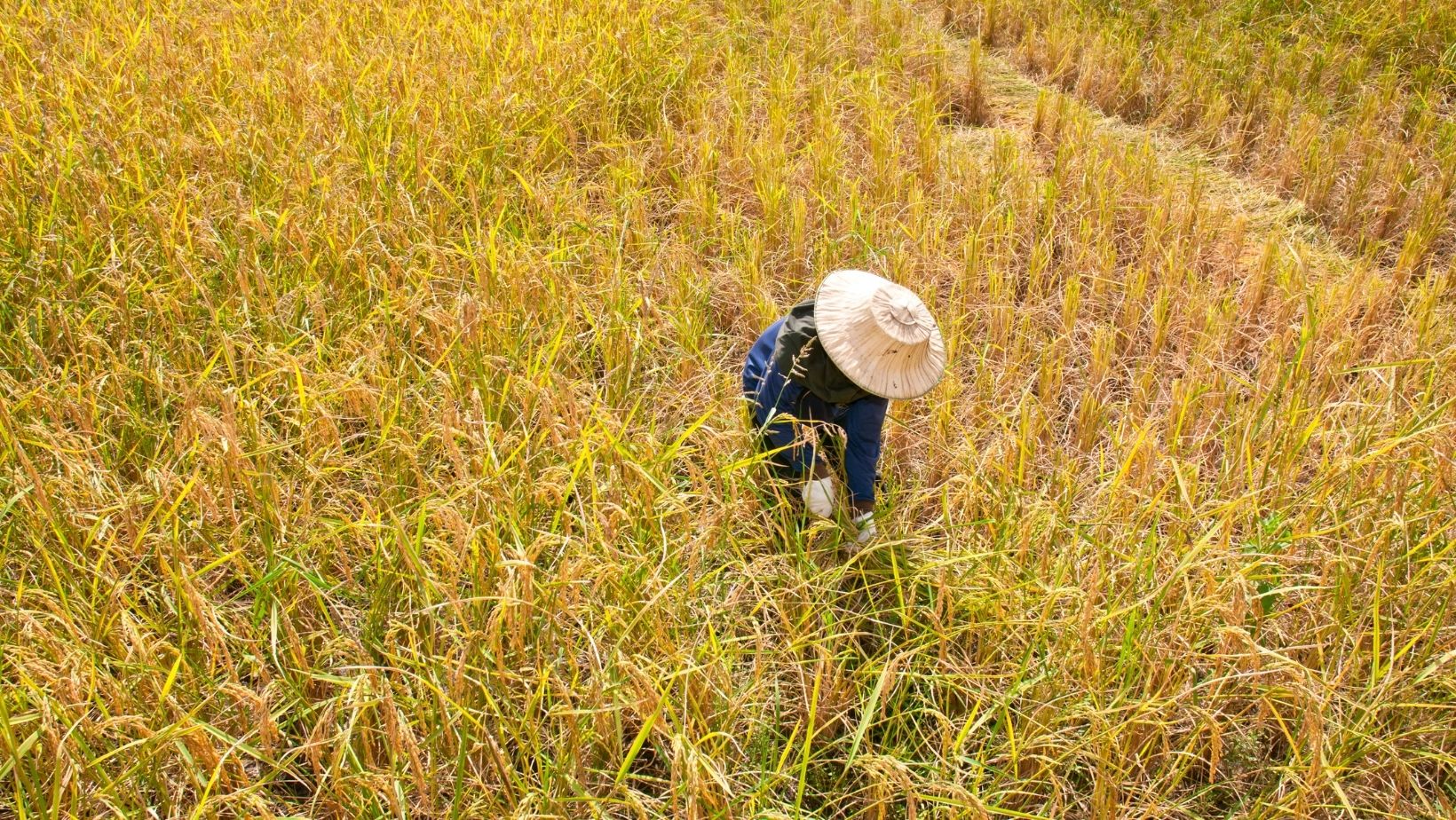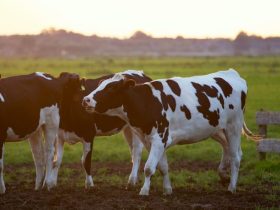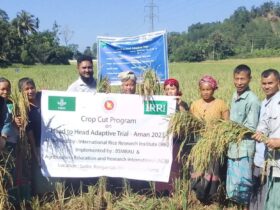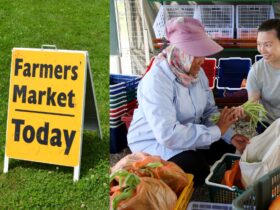Smallholder Farmers: the Catalysts for Sustainable Food Production in Africa
As the name may suggest, sustainable agriculture refers to our ability to meet our food and other agricultural needs without compromising the future generation’s ability to meet theirs. Like any other form of sustainability, sustainable agriculture encompasses the efforts to ensure food security while maintaining a healthy environment, agricultural profitability, social and economic progress for farmers and other actors in the agricultural value chain (UCDavis, 2021). In the case of Africa, with a specific focus on Liberia and Rwanda, smallholder farmers are the main catalysts in this challenging task of feeding an ever-growing population without compromising our commitment to sustainable agriculture practices and environmental protection in general.
It’s worth noting that Africa boasts of more than 65% of the world’s arable land and Family farms, farms that entirely rely on the labor supply of local families, providing feeding and employment for two-thirds of the African population. The United Nations’ Food and Agriculture Organization reports that family farms, managed and operated by smallholder farmers, work 62% of the farmland on the continent. The FAO further says that about 60% of the farms managed by smallholder farmers are smaller than one hectare, and the farms account for 20% of the farmland in Sub-Saharan Africa. Interestingly, 95% of family farms are smaller than 5 hectares, and they account for the majority of farmlands in the sub-Saharan region. From food and cash crop production to livestock rearing, smallholder farmers are the primary food producers for subsistence and local markets in various African countries. They rely primarily on archaic or traditional farming methods to grow food with no or limited irrigation, chemical fertilizers, or other seed varieties (FAO, 2020).
As these numbers suggest, smallholder farmers play an essential role in Africa’s agricultural ecosystem preservation and environmental protection. In Africa, agricultural production contributes to the survivability and livelihood of millions of families. Governments, development partners, and other stakeholders have been committed to ensuring that countries produce enough food to meet the food needs of their growing populations. Despite the importance of these initiatives and policies, adopting some modern farming methods comes with both calculated and unintended harms to the environment. How do we ensure that African farmers maximize their agricultural productivity without compromising the future generation’s ability to meet their needs?
Smallholder farmers must be at the center of all the efforts that aim to bolster sustainable food production in Africa. To ensure a brighter future for food production in countries like Liberia and Rwanda, Investment efforts must be directed at smallholder farmers as they provide peace and account for the livelihoods of millions. In Liberia, the Agriculture sector is dominated by smallholder farmers who heavily rely on subsistence farming for survival. Despite the lack of government support, Liberian farmers account for the livelihood of over 60% of the country’s over 5 million people. Though the country imports over 80% of its staple food (rice), there’s a massive potential for abundant food production.
According to the World Bank, Liberia’s current arable land percentage of the total land area is 5.2 percent. Arable land as a proportion of Liberia’s land area rose from 3.8 percent in 1969 to 5.2 percent in 2018, rising at a 0.67 percent yearly pace. This slow pace of growth is due to the smallholder farmers’ lack of access to resources such as modern farming tools, commercially viable seeds, and sustainable and productive agriculture training (World Bank, 2020). In the case of Rwanda, a small country with an estimated 12 million inhabitants, agriculture has remained the primary and most important sector for years. FAO, the United Nations Food and Agriculture Organization, reports that 70 percent of the Rwandan population are farmers and 72 percent of the working population is formally or informally employed in the agriculture sector (FAO, 2021).
Smallholder farmers are the main catalysts in the agricultural sector of these countries as they produce 80 to 90 percent of the locally grown food products. In Rwanda, smallholder farmers champion the production of food crops like beans, maize, rice, potatoes, etc. They are usually organized in cooperatives that facilitate market access and profitability. With limited resources, these smallholder farmers use fewer chemical fertilizers and pesticides that affect the environment and the consumers’ health. In Liberia, agriculture is considered the work of the poor and villagers. With the high poverty rate amongst smallholder farmers, coupled with the bad road conditions and lack of incentives for farmers, agriculture has remained the sole responsibility of farmers in the hinterland. Though big corporations have hijacked cash crop production in the country, smallholder farmers have remained the principal growers of vegetables and the country’s stable food products like rice, beans, and cassava.
To ensure that we produce enough food for these country’s growing populations without destroying the forest and other critical natural resources, we must collaborate with the local farmers who have inhabited and worked these lands for centuries. Smallholder farmers, on many occasions, have demonstrated their potential to achieve agricultural sustainability while ensuring food security. Their inherent capacity to adapt to societal, environmental, economic changes put them in a pole position to play a central role in our efforts to feed our growing population without compromising the future generation’s ability to meet their needs. With the necessary skills and support, smallholder farmers can lead our double goals of achieving food security for all and conserving natural resources for future generations.
You may read: Organic Agriculture Introduction – Agribusiness Education and Research International
You may read: What is Sustainable Agriculture? – Agribusiness Education and Research International
What is Permaculture? – Agribusiness Education and Research International
Planting System and Sustainable Agriculture – Agribusiness Education and Research International
What is Agricultural Technology? – Agribusiness Education and Research International
References
Agriculture in Africa: Telling Facts from Myths. (n.d.). World Bank Group. Retrieved January 5, 2022, from https://www.worldbank.org/en/programs/africa-myths-and-facts#2
Agula, C., Abunga, M., Dittoh, S., & Nantui Mabe, F. (n.d.). Promoting sustainable agriculture in Africa through ecosystem-based farm management practices: evidence from Ghana, 1. https://doi.org/10.1186/s40066-018-0157-5
Feenstra, G., Ingels, C., & Campbell, D. (2021, August 3). What is Sustainable Agriculture? | Sustainable Agriculture Research & Education Program. Sustainable Agriculture Research & Education Program. Retrieved January 5, 2022, from https://sarep.ucdavis.edu/sustainable-ag
Liberia Arable land as a share of land area, 1960-2020 – knoema.com. (n.d.). Knoema. Retrieved January 5, 2022, from https://knoema.com/atlas/Liberia/topics/Land-Use/Area/Arable-land-as-a-share-of-land-area
Rwanda at a glance. (n.d.). FAO. Retrieved January 5, 2022, from https://www.fao.org/rwanda/our-office-in-rwanda/rwanda-at-a-glance/en/
Smallholder farmers in Rwanda expand into commercial markets with WFP’s support. (2021, September 9). World Food Programme. Retrieved January 5, 2022, from https://www.wfp.org/stories/smallholder-farmers-rwanda-expand-commercial-markets-wfps-support
Sustainability Pathways: Smallholders’ ecology. (n.d.). FAO. Retrieved January 5, 2022, from https://www.fao.org/nr/sustainability/smallholders-ecology/en/
Written By: Usman Lusene Kromah (African Leadership University, BA Global Challenges & Volunteer of Agribusiness Education and Research International).
Contact:
If you have any questions, thoughts, or suggestions, please contact us or join our social media networks.
Email us: [email protected], [email protected]
Feel free to comment:
Your email address will not be shared with anyone.
Join our LinkedIn group
https://www.linkedin.com/groups/13943442/
Join our Facebook group
https://www.facebook.com/groups/agribusinesseducationandresearchinternational






Leave a Reply